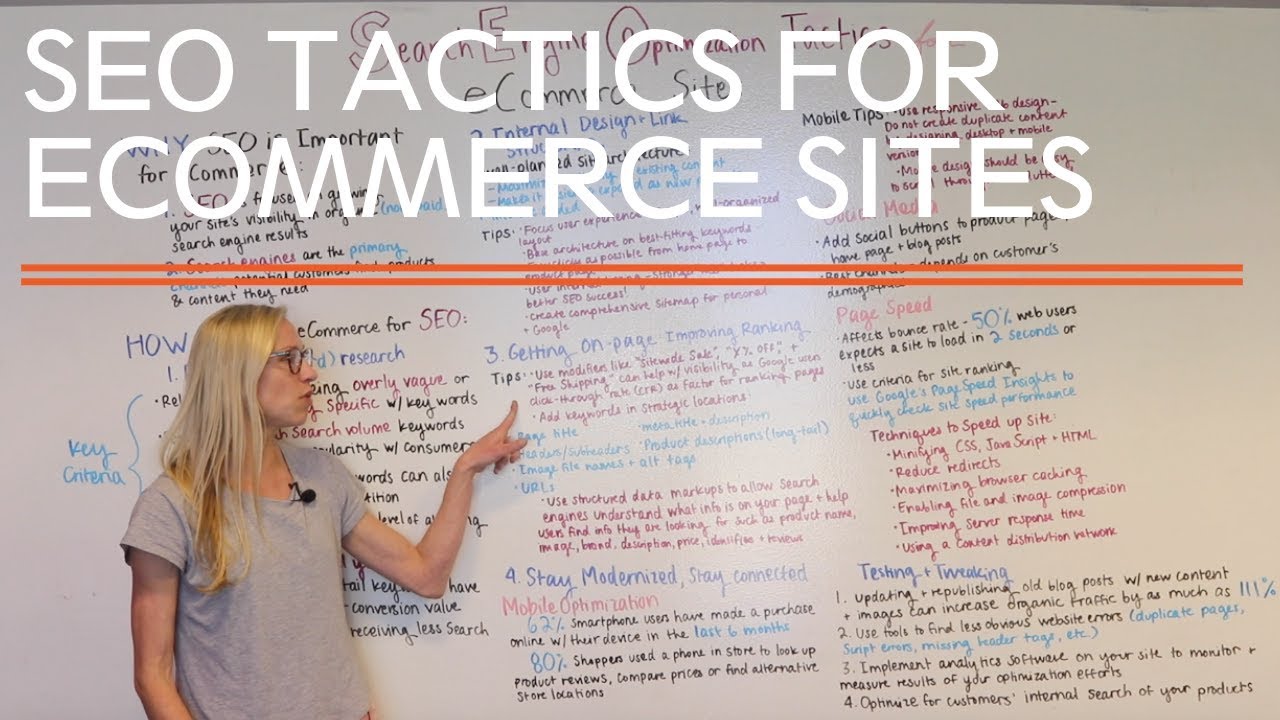What We're Talking About. . . Google Algorithm Updates
Google: the king, the reigning champ, the go-to for any question from “what time does the Chargers game start?” to “how do I write content for an...
I know what I am looking for, and would like to chat.
A team of data-driven marketers obsessed with generating revenue for our clients.
Because the proof is in the pudding.
At Campaign Creators we live by three principles: Autonomy, Mastery, Purpose.
5 min read
 Campaign Creators
:
01/03/19
Campaign Creators
:
01/03/19

New year, new company, new market? Maybe. . . Or maybe you just want to know how to be as successful as a top competitor. Either way, let's get into it.
First and foremost, what is First Mover Advantage? First mover advantage is when a business is the first to see reputable success when entering a new marketplace by offering a unique product or service.
But, why should you care about first mover advantage, especially since your business is probably already established? Well, If you look at how previous companies have seen success, either if they're first movers or followers in a marketplace, you can unveil similar opportunity.
Becoming a first mover doesn't mean you'll stay in business. The marketing and sales strategies you employ will be what ultimately lends success to a company. However, knowing about companies that are - or were - first movers will teach you about employing these strategies,
In this blog, we want to answer some important questions: How did these companies become - or fail to become - first movers, and how does a company succeed even when they aren't first movers? To answer these questions, we'll look at advantages and disadvantages of being a first mover as well as advantages of being second movers. So read along, because here's what we're talking about...
There are a number of advantages when being a first mover, and this article, that comes to us from Corporate Finance Institute, explains a few of those in as simple terms as possible.
Now, being a first mover doesn't mean you'll always be on top in your marketplace. It means that you're the first to succeed in it. So, make sure you take advantage of this as a first mover, so that competitors don't dethrone you and become the new industry titan.
What better way to understand how to be a top performing business with first mover advantage than by looking at companies that successfully achieved this goal in the past. Brought to us by Dan Tyre from HubSpot, you can delve into 7 case studies that examine how these successful companies reached the point of first-mover success, but for all intents and purposes, Amazon is going to be our focus here.
Other than Amazon, of the 7 companies he lists in the article, there's eBay. If you know the history between eBay and Amazon, you'd know they have been in direct competition in the past. This is because, eBay, the world's largest online auction site, withstood Amazon's efforts to encroach on their market with their campaign, Amazon Auction.
Amazon became a giant in its own right, owing their success to being the first major online bookseller, forcing out longtime “brick-and-mortar” setups like Barnes & Noble. They went on to see even greater success, poaching the eCommerce market with their online store, Amazon.com.
Also on this list, Kindle, whose parent company is Amazon, again beat Barnes & Noble to the punchline of success by introducing e-reading in 2007.
So, as you can see, Amazon - who is and isn't a first-mover - identified and acted on many different market opportunities to reach the height of where they are now, though not all attempts they made worked out as they would've liked. The same goes for YOU, or any first-mover or follower. Succeeding through innovative, yet researched methods, sales and marketing strategies is key.
Using game theory, Geoff Riley goes over 4 scenarios in this short video clip where two firms, Firm A and Firm B, comparatively price products, assuming they've the same quantity of product. When Firm A prices their product high, and Firm B prices their product low, Firm A will receive negative return. The same scenario applies when Firm A and B flip their prices. Now, when Firm A and B equally price high, they both receive higher return for their products, and the same applies when they equally price low, though they make less profit.
What does this teach us then? Well, when competing against direct competitors, you'll want to analyze how much you should be pricing your product relative to how much of it you own.
Aside from this, Riley also covers possible pitfalls of holding first mover advantage, which by accessing, you can implement strategies to eliminate them, such as:
We know the lot of you aren't first-movers, unfortunately! So, how can you succeed when a marketplace is dominated by first-movers? Well, success in this case mostly relies on learning from first mover's mistakes, as we somewhat previously pointed out.
First movers are taking big risks when entering and looking to sustain themselves in a market, which this article from Mike Fishbein covers, including:
Learning how to succeed in a marketplace when you are a second-mover relies on understanding these problems that first-movers face.
Thus, you as a second mover have a few advantages, which are:
Mimicking can still result in achievement and ultimately requires much less effort to do than starting a business with a new sales and marketing strategy from scratch.
Now, if you are a first mover, we wish you luck! But, if you aren't and would still like to succeed in your market, we hope you learn from your own mistakes and the mistakes of your direct competitors. One way to ensure that your business won't fail is to proactively employ sales and marketing strategies, knowing your sales processes' ins and outs.
A big challenge first movers and second movers face is knowing their target audience, and subsequently, gaining and identifying leads. We'd like to help you with that too. So, learn how to define a lead, qualify a lead and know the mechanics for generating leads by heading on over to our ECommerce Marketing: Introduction to Lead Generation Guide.

Google: the king, the reigning champ, the go-to for any question from “what time does the Chargers game start?” to “how do I write content for an...

When you’ve put so much work into building your company's eCommerce website and building out a great eCommerce marketing plan, it can be extremely...

You’re doing everything you should: posting on social media, keeping up with blogs, and utilizing SEO. Why is your inbound marketing strategy not...